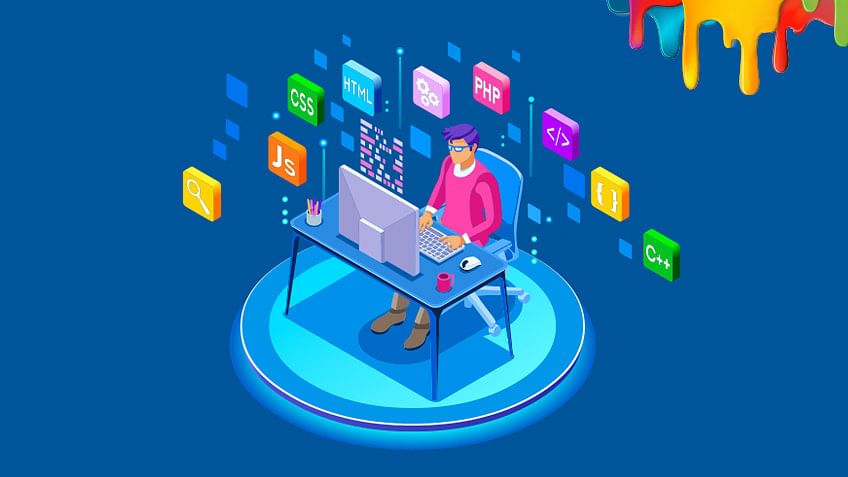In today’s tech-driven world, becoming a full stack developer is a career move many professionals...
The Role of Project-Based Learning in Online Full Stack Courses
In today’s fast-paced digital world, the demand for full stack developers is at an all-time high. These professionals, capable of handling both front-end and back-end development, are key players in the software development process. However, the journey to becoming a skilled full stack developer is more than just theoretical learning. This is where project-based learning (PBL) plays a transformative role, particularly in online full stack courses.
What is Project-Based Learning?
Project-Based Learning (PBL) is an educational approach where students gain knowledge and skills by working on real-world projects. Instead of passively absorbing information through lectures and textbooks, learners actively engage in solving problems or building products, which mirrors actual industry tasks.
When applied to online full stack courses, PBL focuses on providing hands-on experience, making learners solve real-world programming challenges. This method not only reinforces technical skills but also fosters creativity, collaboration, and critical thinking.
Importance of PBL in Full Stack Courses
1. Bridging Theory and Practice
One of the key advantages of PBL is that it helps learners bridge the gap between theory and practical application. Full stack development requires proficiency in multiple languages, frameworks, and databases. Through projects, learners can see how these technologies work together, which enhances their understanding and retention of complex concepts. For example, building a full-fledged web application offers more insight into how the front end interacts with the back end, compared to learning them in isolation.
2. Real-World Experience
In a project-based approach, learners work on tasks that closely resemble what they would do in a professional setting. Whether it's developing an e-commerce platform, creating APIs, or managing databases, these projects simulate actual job responsibilities. As a result, students are better prepared for the challenges they will face in the workplace, making them more attractive candidates to employers.
3. Enhanced Problem-Solving Skills
Every full stack project comes with its own set of challenges. From debugging code to optimizing performance, learners are pushed to think critically and solve problems independently. This real-time problem-solving hones their ability to troubleshoot and innovate, essential skills in the dynamic field of full stack development.
4. Collaborative Learning
Full stack development often requires working in teams. By participating in group projects, learners enhance their ability to collaborate with others, communicate effectively, and manage tasks. Online platforms frequently provide tools for group work, such as version control systems like GitHub, which simulate real-world collaboration environments used by development teams.
5. Portfolio Building
Perhaps one of the most practical benefits of PBL is that it allows learners to build a strong portfolio. Full stack developers need more than just a resume filled with skills; they need a tangible showcase of their work. With project-based learning, students graduate from online courses with fully functional projects, such as web applications or APIs, that they can present to potential employers or clients.
6. Keeping Up with Industry Trends
The tech industry evolves rapidly, and employers are constantly looking for candidates who can keep up with the latest trends and technologies. Project-based learning encourages students to use the newest tools and frameworks as they emerge. By working on diverse projects, learners become familiar with cutting-edge technologies, making them more adaptable and relevant in the job market.
How Online Full Stack Courses Implement Project-Based Learning
Online platforms offering full stack courses understand the value of PBL, and many have integrated it as a core component of their curriculum. Here are some ways it is implemented:
- Capstone Projects: Many courses culminate in a capstone project where students apply everything they’ve learned to create a full-stack application from scratch.
- Mini Projects: Throughout the course, learners are assigned smaller projects that cover specific aspects of full stack development, such as building a RESTful API or creating a responsive website.
- Peer Review and Feedback: In some online platforms, students can submit their projects for peer review. This fosters a learning community where feedback is shared, and collaborative problem-solving takes place.
- Mentorship and Guidance: Some courses offer mentorship where students work closely with industry professionals who guide them through complex projects, providing both technical and career advice.
Conclusion
Project-based learning is a cornerstone of effective education, especially in an online Full Stack Course. It offers students practical, real-world experience, fosters problem-solving skills, and enhances their ability to work in collaborative environments. By engaging in hands-on projects, learners can apply theoretical knowledge to real-world scenarios, making them more prepared for professional challenges.
Additionally, project-based learning allows students to build a portfolio, showcasing their skills and projects to potential employers. In a competitive field like full stack development, a strong portfolio can be a decisive factor in securing job opportunities. Ultimately, a online web development course that incorporates project-based learning equips learners with both the technical expertise and practical experience necessary to excel in the industry.


